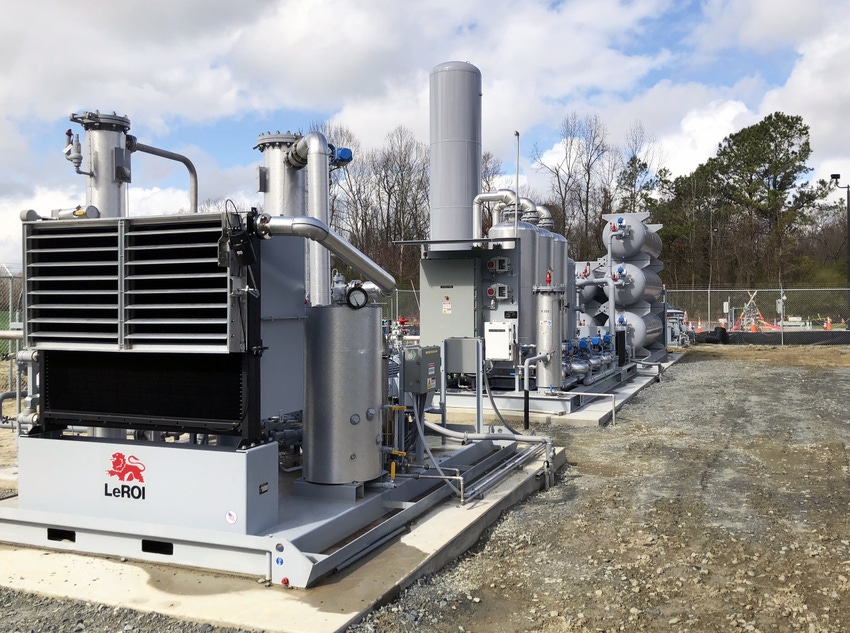Harvesting unused organics such as swine manure from farms can create new business opportunity for farmers.
March 29, 2018

A Duke Energy power plant is using renewable natural gas from North Carolina-based hog farms to produce electricity — the first application of the technology from in-state farms. Renewable natural gas is sometimes called directed biogas.
"This is a major breakthrough for renewable energy in North Carolina," Duke Energy's North Carolina president David Fountain said. "This project allows for the capture of emissions from hog operations and converts the renewable natural gas to electricity for customers. We look forward to continuing our work on future projects."
The Optima KV project in Duplin County, N.C., captures methane gas from the hog waste of five local farms. Using more than 42,000 ft. of in-ground piping, the methane is moved to a central location, where the gas is cleaned and converted to pipeline-quality natural gas, the company said.
The project injects the renewable natural gas into the Piedmont Natural Gas system, which transports it to Duke Energy's Smith Energy Complex in Richmond County, N.C., where it is used to produce electricity. Optima KV completed its interconnection to Piedmont Natural Gas last week.
"Biogas is such a rich resource for the state, especially for North Carolina's agriculture industry," said Gus Simmons of Cavanaugh & Associates, a partner of OptimaBio. "Harvesting unused organics such as swine manure from farms can create a new business opportunity for farmers, provide an in-state source of energy fuel and improve the sustainability of the agriculture and energy sectors. It's a win-win."
Announced in 2016, the project is expected to yield about 11,000 megawatt-hours of electricity — enough to power about 1,000 homes.
Historically, renewable natural gas has been used by smaller, on-site generators that are connected to the overall energy grid. Using Duke Energy's larger, more efficient plants allows more renewable energy to be created with the same amount of renewable natural gas, the company explained.
"Optima KV is just the first of more projects where directed biogas will be used at Duke Energy power plants to create efficient renewable energy. Getting projects to a meaningful scale is important as we advance this innovative technology," Fountain added.
The project will help Duke Energy satisfy swine waste-to-energy mandates under North Carolina's Renewable Energy & Energy Efficiency Portfolio Standard. Under this law, Duke Energy must generate 0.20% of its retail sales from swine waste by 2023.
Duke Energy, with headquarters in Charlotte, N.C., is one of the largest energy holding companies in the U.S.
OptimaBio is a Raleigh, N.C.-based swine waste-to-energy project developer and the leader in renewable natural gas development for North Carolina. It's a partnership bringing together experts in bioenergy, agriculture, project finance and environmental stewardship to invest in rural communities for the greater good.
You May Also Like

.png?width=300&auto=webp&quality=80&disable=upscale)

